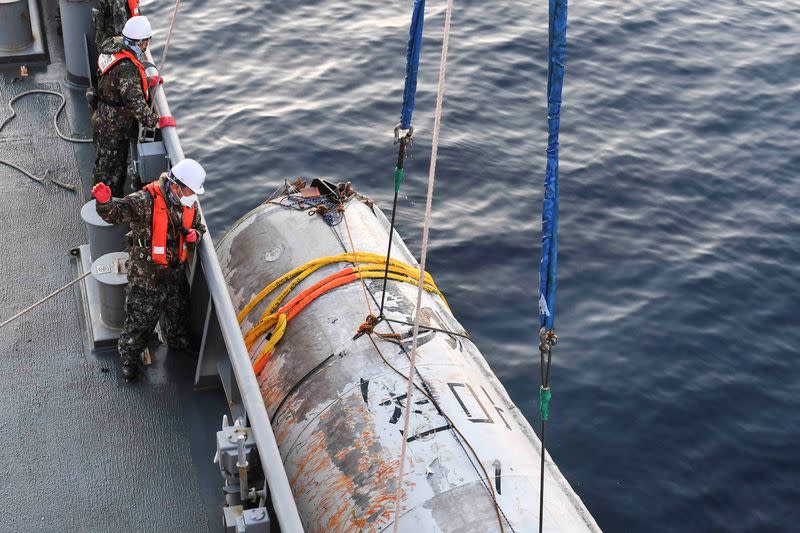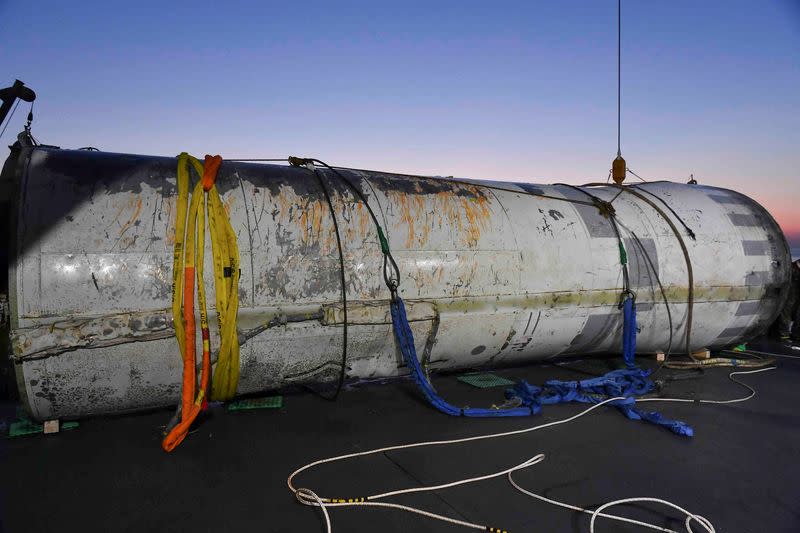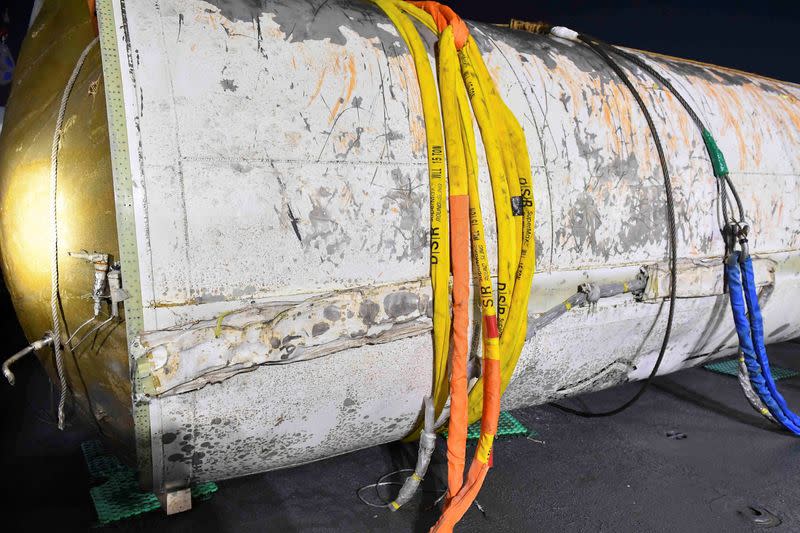South Korea recovers part of rocket used in North's failed satellite launch
By Soo-hyang Choi and Hyonhee Shin
SEOUL (Reuters) - South Korea has recovered from the sea part of a rocket used in North Korea's failed attempt to launch its first military satellite last month, the Joint Chiefs of Staff said on Friday.
The announcement came about two weeks after North Korea unsuccessfully tried to launch its first spy satellite, with the booster and payload plunging into the sea.
The debris was salvaged on Thursday evening from the seabed about 75 metres (246 feet) below the surface off the west coast, the military said, adding that the search continued for additional objects from what the North said was a space launch vehicle.
South Korea began retrieving debris shortly after the launch, and had already recovered smaller parts. But the operation had faced difficulties partly because of a strong tide and bad visibility, prompting the military to dispatch 10 vessels and dozens of deep-sea divers.
Photographs released by the Joint Chiefs of Staff showed a large cylindrical object marked "Chonma," meaning a winged horse in Korean. North Korea had said the rocket was named "Chollima-1."
"The salvaged object will be thoroughly analysed in cooperation with the United States," it said in a statement.
South Korea's Defence Minister Lee Jong-sup had said that the debris appeared to be the second stage of the rocket, and that the military would keep looking for the payload and the third stage.
Lee Choon-geun, a honorary research fellow at South Korea's Science and Technology Policy Institute, said the newly retrieved object appeared to be a fuel tank.
If the military finds an engine attached to the tank, it could help discover some features of North Korea's new rocket engine, which is designed to produce greater thrust at higher altitudes, he said.
Chang Young-keun, a professor at Korea Aerospace University, said the debris would also offer hints at the technical progress made by North Korea on its intercontinental ballistic missile (ICBM) capability and whether it had procured any components overseas in a potential breach of sanctions.
"This is important data," Chang said.
South Korea has said Chinese warships had also conducted salvage operations in waters where the North Korean rocket crashed, but it was not immediately clear whether the Chinese military was continuing its search.
Seoul and Washington have condemned the launch as a provocation and violation of U.N. Security Council resolutions banning the North's use of ballistic missile technology.
Pyongyang said it was exercising its right to space development to counter what it described as U.S. "aggression" and vowed to stage another launch soon.
On Friday, the U.S. guided-missile submarine USS Michigan arrived in South Korea for the first time since 2017 for joint special warfare exercises aimed at improving responses to North Korean threats, the South Korean navy said.
The submarine's dispatch was seen as a show of force against North Korea, which fired two short-range missiles off its east coast on Thursday and warned of an "inevitable" response to South Korea-U.S. military drills.
(Reporting by Soo-hyang Choi; Additional reporting by Hyonhee Shin and Ju-min Park; Editing by Ed Davies and Gerry Doyle)



